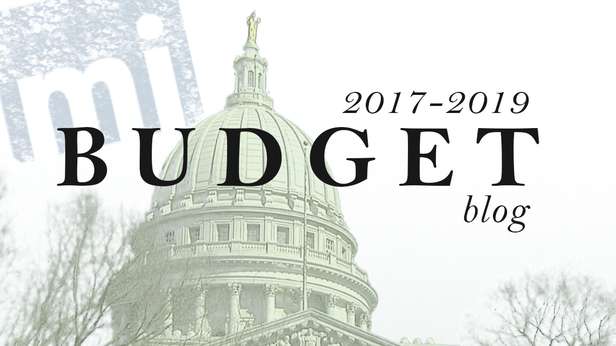
May 1, 2017
The Joint Finance Committee begins voting on the 2017-2019 state budget today by taking up some of the least contentious parts of Governor Scott Walker’s proposal.
Some of the first items include funding for the courts, insurance, Administration, Division of Gaming, Board for People with Developmental Disabilities, Board on Aging and Long-Term Care, Environmental Improvement Fund, and the Employment Relations Commission. That means the controversial issues and many points of friction that have materialized in the last few months will be voted on further down the road.
Those issues include transportation funding, increased aid for K-12 schools, a variety of reforms for the UW System, and a proposal to switch state employees’ health insurance to a self-funded model – all likely to gum up the process.

Earlier in April, JFC took the rare step of removing all 83 non-fiscal policy items from Walker’s budget, just the second time in 25 years the committee completely stripped all policy items from a governor’s budget. Each proposal stripped from the budget now needs to be drafted as separate legislation.
Several of the removed items are popular with conservatives, such as a full repeal of the state’s antiquated prevailing wage law, a measure prohibiting government from requiring union-friendly project labor agreements on taxpayer funded projects, a proposal to allow UW students to opt-out of certain fees, and a requirement that UW campuses track faculty workloads.
Which raises the question: Will fiscal conservatives and budget hawks vote for the budget if these popular conservative items do not make their way back?
JFC also completely scrapped Walker’s transportation budget, the first time in ten years the committee threw out an entire portion of a governor’s budget. Even though the governor and leaders in the Assembly have been trading barbs over the transportation budget for months, many insiders were surprised that the Legislature would make such an audacious and aggressive move.
Transportation funding is sure to be the most contentious issue as the budget process unfolds. Walker has been steadfast in sticking by his pledge not to raise the gas tax or vehicle registration fee, while Assembly leaders say they want to keep all tax increase options open to bridge what they claim to be a billion-dollar funding shortfall and too much transportation bonding.

A MacIver Institute report in March debunked the billion dollar narrative and explained how “Madison math” was used to come up with the inflated figure.
And no one in the legislature has responded to MacIver’s 2015 report on the Bridge Too Near, a $3.6 million dollar pedestrian bridge built unnecessarily less than a two-minute walk from an existing bridge.
One persistent rumor making its way around the Capitol is that Assembly Speaker Robin Vos believes he has fifty votes in his house for a 10-cent gas tax increase.
The hopes of some in the Assembly and special interests groups to raise the gas tax were dealt a blow earlier in the year when a Legislative Audit Bureau report found the Department of Transportation had been low-balling cost estimates to the legislature, failed to comply with state law and its own policies, and didn’t adequately track cost overruns, among other problems.
Walker’s proposal to cut UW tuition by 5 percent in the second year of the budget for in-state undergraduates has also hit a snag at JFC. After Walker’s state of the state address, Assembly Speaker Robin Vos said the cut wasn’t a priority, and JFC co-chair John Nygren has also thrown cold water on the idea, stating he prefers targeted financial aid to a tuition cut for all students.
Walker’s budget increases K-12 funding by $648.2 million, a proposal many thought would get the same treatment as his transportation budget, but JFC decided to consider the proposal as-is. A sticking point for some is sure to be a caveat that ties the increased aid to Act 10 compliance.
In order to qualify for the increased aid, a district must demonstrate that its employees are contributing 12 percent to their health insurance. But some districts, including the Madison Metropolitan School District, protest that since they’ve shopped around for better deals on their insurance they should be given leeway.
Walker’s K-12 increase relies partly on finding $60 million in savings on state employee health insurance. The governor proposes switching the state to a self-funded insurance system where the state would pay claims, rather than farming it out to a network of private insurance companies. The proposal has also met a chilly reception in the Legislature.
Later this week, state Rep. Dale Kooyenga, a leader of the Republican CPA caucus and a conservative thought leader, is expected to forward for consideration a comprehensive transportation and tax proposal that some believe may bring the politicians and the different warring special interests together to agree on a deal. As more details of the proposal become available, MacIver will bring you up-to-the-minute updates on this situation and any others that arise.
JFC will continue its executive sessions on the budget throughout the month of May. The Assembly and Senate could then potentially hold floor votes in June. The state’s fiscal year ends on June 30th, which is the unofficial deadline for the budget. However, speculation abounds that this fierce budget debate could drag the process out to October. Stay tuned.